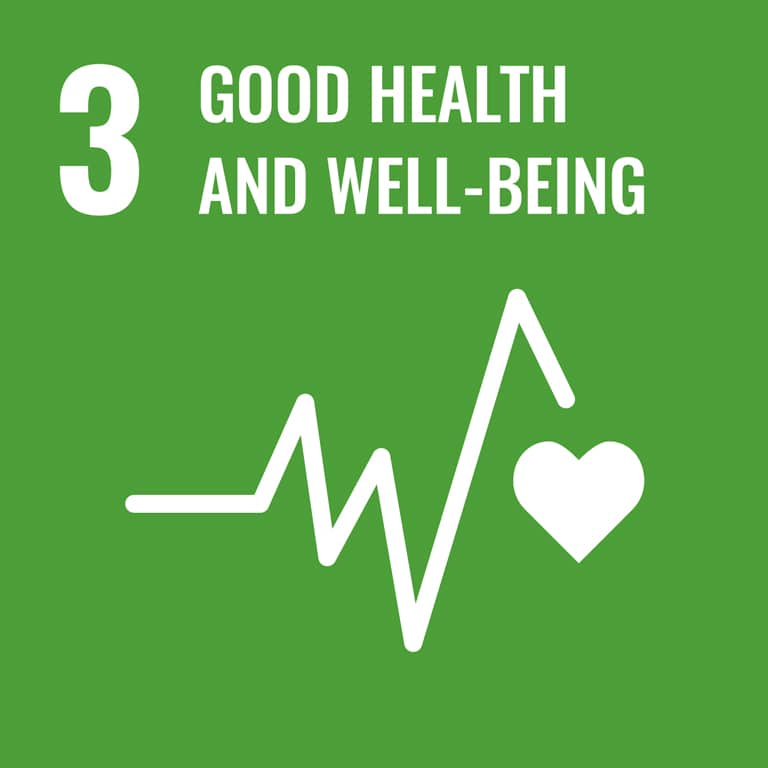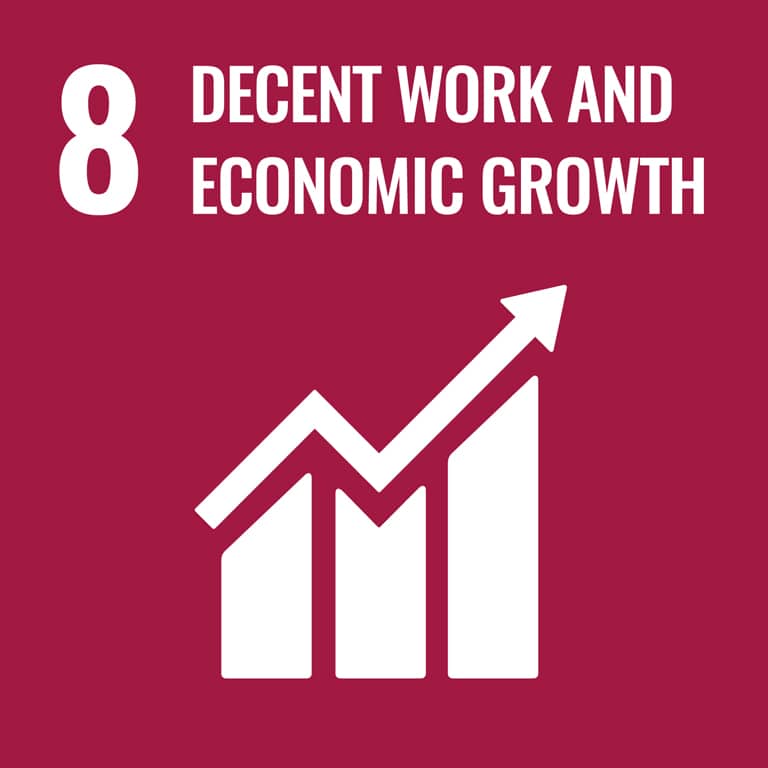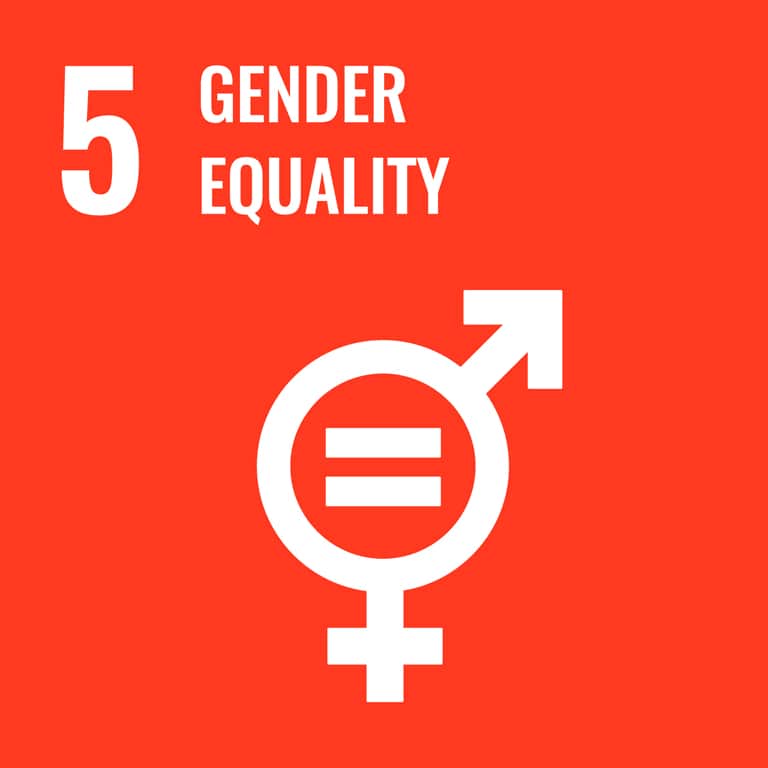TEXT Labor Relations and Accident Prevention Area – Spain | IMAGES ISTOCK
Since the start of the pandemic, some things have changed significantly, but we’re starting to be able to recover our old habits and lifestyles, and we’re finally seeing some encouraging signs of progress. Although things may seem normal on the surface, everything is starting to change.
All UN member states adopted the 2030 Agenda for Sustainable Development in September 2015. Its 17 Sustainable Development Goals (SDGs) and 169 targets for their achievement balance the three dimensions of sustainable development: social, environmental, and economic.
The SDGs are a call for collective action to, among other urgent challenges, end poverty and protect the planet. The goals provide a roadmap to focus everyone’s efforts to achieving positive changes in people’s well-being.
MAPFRE’s Sustainability Plan includes a line of work and concrete objectives to contribute to the largest global strategy for sustainable development, with a focus on seven:
What does MAPFRE do in Accident Prevention and Health to contribute to the SDGs?
At MAPFRE, people are our main asset, and taking care of their physical and mental health, safety, and well-being is our priority.
We are committed to promoting a safe and healthy work environment and pursuing continual improvement. We view it as a key element of competitiveness and essential for enhancing the company’s productivity and sustainability.
As stated in our Code of Ethics and Conduct, we have committed to provide safe and healthy workplaces, ensuring workers the right to protect their health and integrity and going beyond the labor environment itself to include employees’ families. MAPFRE therefore undertakes to integrate the prevention of occupational risk and the promotion of health and well-being into all the company’s activities and decisions at all levels of the organization, and to follow a healthy company management model nurtured by a process of continual improvement.
In compliance with our Health, Well-being, and Occupational Risk Prevention Policy, we are contributing directly to some of the objectives of the 2030 Agenda. This translates into actively working to:
- Consolidate a safe working environment that allows us to perform our work under the best physical, psychological, and social conditions.
- Foster and protect the physical and mental health and well-being of all people who work at MAPFRE and their families, both in their personal lives and at work.
- Minimize occupational risks in order to prevent work-related accidents and occupational diseases and reduce absenteeism for health reasons.
What can youdo? Some tips for making your contribution to the SDGs from a Health and Accident Prevention perspective:
- Check your health regularly.
- Follow a healthy eating plan.
- Exercise.
- Think positively and take care of your mental health. If you are feeling sad, down, or have an issue that you don’t know how to handle with and need help, turn to MAPFRE for help.
- Set aside about a third of your time for yourself and your personal tasks, leisure, family, friends, etc.
- Sleep 8 hours a day; good rest is wonderful for your health.
- Take part in the health awareness campaigns brought to you by MAPFRE.
Take care of your and your loved ones’ health!

SDG 3 Health and Well-Being
We ensure working conditions that protect people’s health and well-being.
In our effort to achieve this, and depending on each country, we conduct occupational health examinations (initial, periodic, return after medical leave) and specialized and personalized medical advice according to the conditions of each person. Moreover, based on the results of collective health surveillance, we organize local and global prevention and health promotion campaigns on communicable and non-communicable diseases and the prevention of substance abuse.
Within the framework of our Global Healthy Company Model, we host actions to promote healthy habits, offering employees the necessary resources and tools through different activities and informative actions (health awareness campaigns to promote regular physical activity and healthy eating, etc.). At this point, we should highlight MAPFRE Week, where health and well-being take center stage.
Traffic accidents are one of the leading causes of death and injury worldwide. In response, we work to bring about safer, healthier, and more sustainable mobility. To learn more about this topic, we encourage you to read the report “Road safety, working toward safe and sustainable mobility,” published in the 113th edition (January 2022) of The World of MAPFRE.
Meanwhile, COVID-19 showed us the mental health impact of restrictions on individual freedom or the lack of social contact. It is safe to say that SDG 3 is also related to mental health. For this reason, MAPFRE implemented different initiatives (support lines or awareness campaigns) to help mitigate the effects of these situations on emotional health.

SDG 8 Decent work and economic growth
We work to create environments that guarantee the safety of all people and working conditions that reduce and prevent accidents.
At MAPFRE, we ensure that working environments are safe in terms of infrastructure and services (spaces, equipment and machinery, environmental conditions, emergencies, ergonomic and psychosocial conditions, etc.), and we inspect them annually. This allows us to continuously monitor the risks present in our workplaces and job positions, and to adapt to changes swiftly.
We also assess to what degree workers with special health conditions and pregnant women are exposed to occupational hazards, establishing the necessary preventive measures on the basis of a specific risk assessment.
We are proactive in raising awareness of occupational hazards and adapt workplaces to ensure safe working conditions.

SDG 5 Gender equality
When it comes to health, we work to guarantee better access to basic health services and to prevent illnesses that affect women and their professional development.
We have implemented measures to promote and protect maternity so that any woman who wishes to become a mother has all the necessary guarantees that her professional development will not be affected. In an effort to safeguard breastfeeding and its benefits for the baby’s health, different countries have set up spaces for mothers to extend the time they spend breastfeeding, even after returning to work.
We promote health awareness campaigns for the early detection of breast cancer and other pathologies associated primarily with women that may represent a turning point in their professional careers, and we accompany them in their return to work after a long period of sick leave. The same applies to male diseases, such as prostate cancer.
Since the adoption of the 2030 Agenda, there has been a succession of international conventions and European resolutions that contribute to the achievement of the targets set out in the SDGs and, in particular, to developing a culture of accident prevention and health at work. Due to their proximity in time, we want to highlight the following:
- Convention 190 on violence and harassment, which recognizes the right of everyone to work free from violence and harassment. With a view to contributing to the SDGs, Convention 190 recognizes that violence and harassment can constitute a violation or abuse of human rights. This conduct, from the perspective of accident prevention and safety at work, is not only a threat to equal opportunities, but is also unacceptable and incompatible with decent work, as it affects people’s psychological, physical, and sexual health, their dignity, and their family and social environment. It can also prevent people, particularly women, from entering, remaining in, or advancing in the labor market.
- The Resolution on mental health in the digital world of work (2021/2098(INI)) adopted by the European Parliament on 5 July. By adopting it, the Parliament considers mental health, as well as physical health, as a fundamental human right. Furthermore, it is linked to other fundamental rights such as the right to human dignity and the right to bodily integrity.




